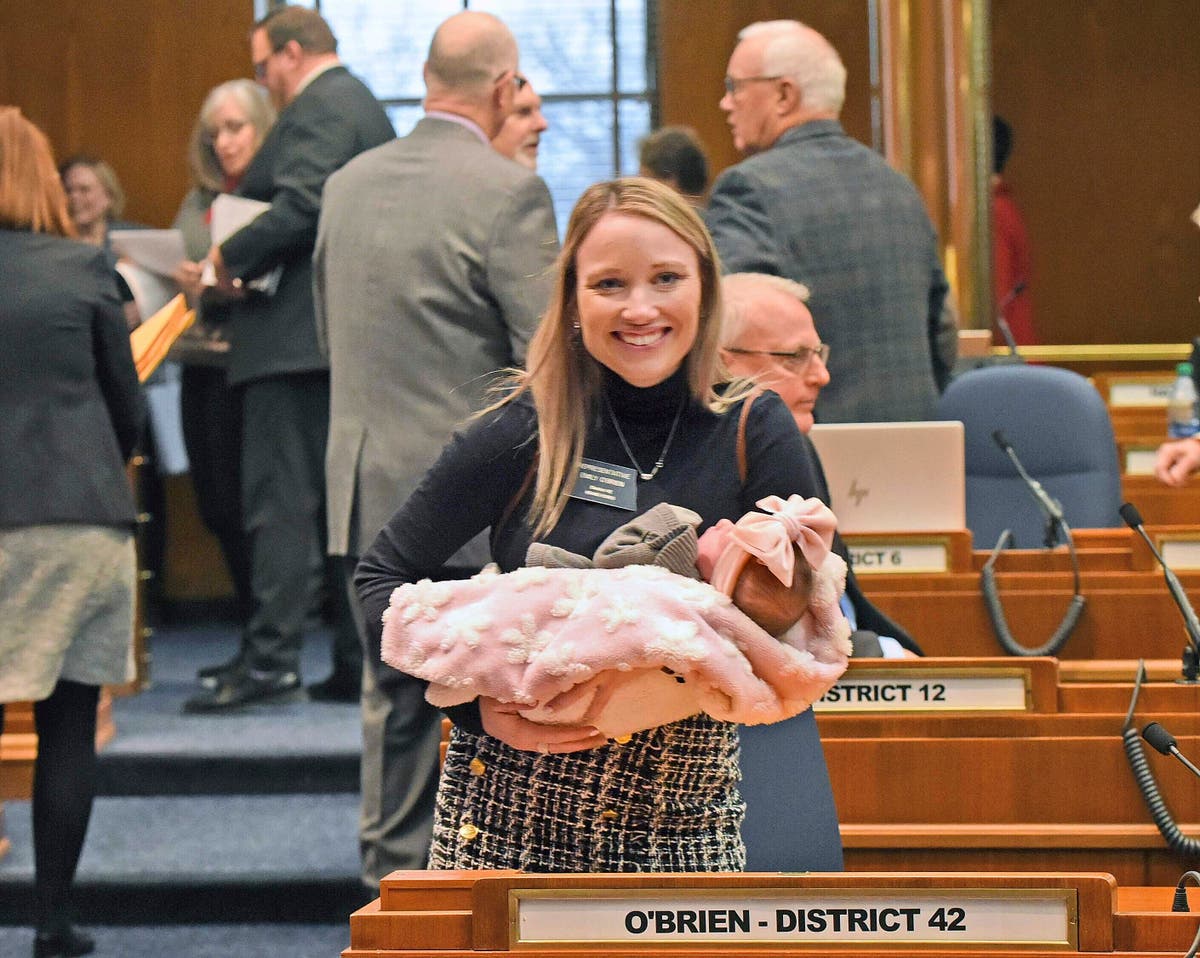More Republican lawmakers in states around the U.S. are getting behind the idea of using taxpayer money to subsidize child care
Like a lot of mothers, North Dakota state Rep. Emily O’Brien struggled to find infant care when her daughter Lennon was born in 2019. So O’Brien, a Republican who represents the Grand Forks region, brought Lennon along to meetings with local leaders and constituents.
O’Brien had her second daughter, Jolene, in 2022, not long before legislators were due to meet. Wanting more time to bond before returning to work, O’Brien brought the newborn with her to Bismarck, where she snoozed through Gov. Doug Burgum’s State of the State address on her mother’s desk.
Not long after, O’Brien persuaded her colleagues to back a plan to invest $66 million in child care, an unprecedented sum for a state that had, like others with Republican leadership, long resisted such spending. But O’Brien argued it could help the state’s workforce shortage by helping more parents go to work and attracting new families to the state.
“It was definitely not, you know, an easy sell, because this is probably somewhere where you don’t want the government to get involved,” O’Brien said. “But it’s a workforce solution. We have people that are willing and able to work, but finding child care was an obstacle.”



This is the best summary I could come up with:
Now, as that aid dries up, Republican state lawmakers across the country are embracing plans to support child care — and even making it central to their policy agendas.
In Vermont, Democratic state lawmakers overrode a Republican governor’s veto to pass a payroll tax hike to fund child care subsidies.
In Missouri, Senate President Pro Tem Caleb Rowden, a Republican, said he hoped the Statehouse would focus less on culture war issues — like criminalizing drag shows and censoring library books — and more on expanding access to child care and school choice.
Two years ago, an Idaho state lawmaker apologized after he opposed federal early childhood money because it encouraged women to “ come out of the home and let others raise their children.”
One of the strongest proponents is the U.S. Chamber of Commerce Foundation, which surveyed a dozen states and estimated they lost billions of dollars in economic activity because of child care gaps.
“The one thing … that I’m not wiling to do is to directly subsidize child care for families,” Noem recently told KWAT News in Watertown, South Dakota.
The original article contains 1,090 words, the summary contains 184 words. Saved 83%. I’m a bot and I’m open source!